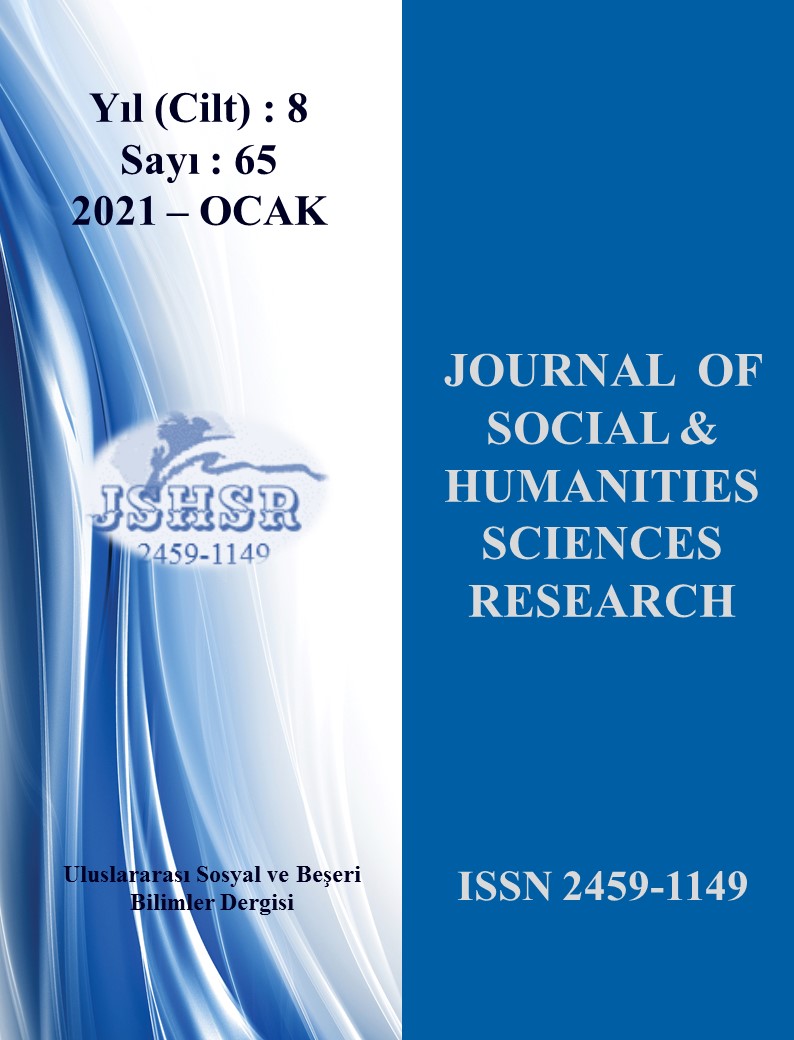THE ROLE OF COPING STRATEGIES AND COMPETENCE BELIEFS ON EXPLAINING THE FOREIGN LANGUAGE LEARNING ANXIETY OF TEENAGERS
DOI:
https://doi.org/10.26450/jshsr.2071Keywords:
Foreign language anxiety, competence belief, coping strategies, predictingAbstract
The aim of the research is to analyze coping strategies and the competence belief that teenagers have which they consider as the explanation of their foreign language learning anxieties. The sample of the research, which has been conducted in a secondary school universe, consists of a total number of 650 students, 325 (50%) girls and 325 (%50) boys, who has attended the research from two different cities in two different regions, Central Anatolia and the Mediterranean. For this research; “Foreign Language Learning Anxiety Scale” developed by Baş (2013), “Coping Strategies Scale” developed by Bedel, Işık and Hamarta (2014) and “Competence Belief Scale” developed by Çelikkaleli (2014) have been used as data collection tools. Multiple regression analyze has been utilized to analyze the data. Foreign language learning anxiety has been reviewed with regards to general anxiety, personality originated anxiety with its three sub-dimensions, communicative anxiety and evaluation anxiety.
In the research, it has been determined that; the coping strategies that teenagers use and the competence belief that they have to explain the 33,6% of the total variance in general anxiety factor in foreign language learning; order of importance of predictor variables is formed as; negative coping, active coping, emotional competence belief, restraint coping, academical competence belief and social competence belief; active coping, restraint coping, negative coping, academical competence belief and emotional competence belief are meaningful predictors on general anxiety of foreign language learning; social competence belief has no significant impact.
It has been determined that; the coping strategies that teenagers use and the competence belief that they have to explain the 29,6% of the total variance in personality originated anxiety factor in foreign language learning; order of importance of predictor variables is formed as; negative coping, emotional competence belief, active coping, academical competence belief, restraint coping and social competence belief; active coping, restraint coping, negative coping, academical competence belief and emotional competence belief are meaningful predictors on general anxiety of foreign language learning; social competence belief has no significant impact.
It has been determined that; the coping strategies that teenagers use and the competence belief that they have to explain the 20,5% of the total variance in communicative anxiety factor in foreign language learning; order of importance of predictor variables is formed as; negative coping, academical competence belief, active coping, restraint coping, social competence belief and emotional competence belief; negative coping and academical competence belief are meaningful predictors on communicative anxiety in foreign language learning; emotional competence belief and social competence belief have no significant impact.
It has also been determined that; the coping strategies that teenagers use and the competence belief that they have to explain the 27,1% of the total variance in evaluation anxiety factor; order of importance of predictor variables is formed as; negative coping, active coping, social competence belief, restraint coping, emotional competence belief and social competence belief; active coping, restraint coping, negative coping and social competence belief are meaningful predictors on evaluation anxiety in foreign language learning; academical competence belief and social competence belief have no significant impact.
Downloads
Published
How to Cite
Issue
Section
License
Copyright (c) 2021 INTERNATIONAL JOURNAL OF SOCIAL HUMANITIES SCIENCES RESEARCH

This work is licensed under a Creative Commons Attribution 4.0 International License.


